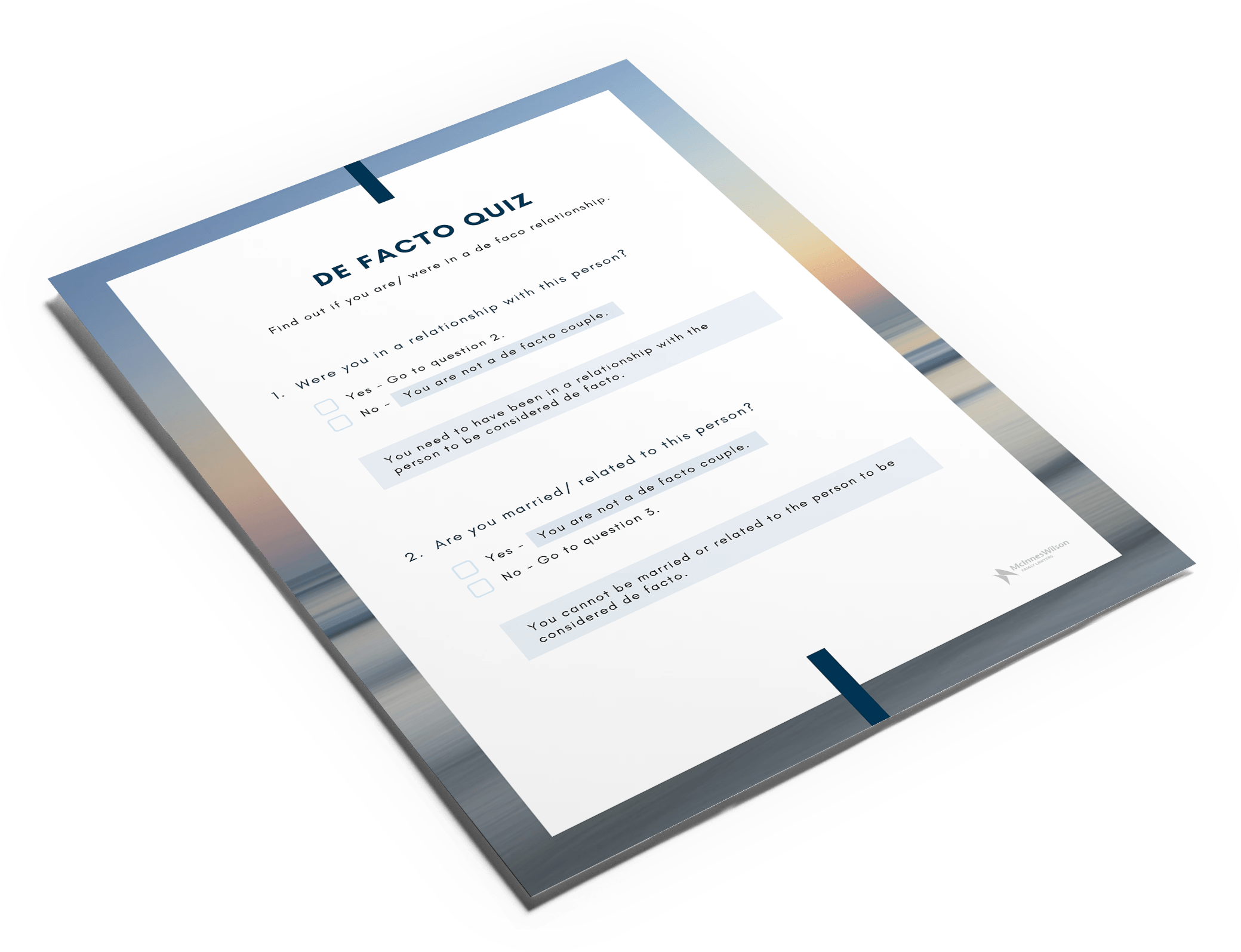
Am I entitled to Spousal Maintenance if i was in a de facto relationship?
Question:
Recently, my partner and I of 9 years separated. We ended things on good terms but I'm struggling financially without them. As they were the main income earner and I only work part time I'm finding it hard to pay for my rent and other basic costs of living now that they are gone. Working full time isn't an option for me either as I still need to take care of our two young children.
I know that you are entitled to spousal maintenance if you were married but my partner and I never got married. Does that mean I'm not entitled to spousal maintenance as a de facto?
Answer:
No, it does not mean you do not have an entitlement. As a de facto you have the same entitlement to spousal maintenance as a married couple does.
The main difference is that if you weren't married you have to satisfy the requirements of being in a de facto relationship. You can check if you satisfy the requirements of being a de facto by taking the following quiz:

De Facto Quiz
Download and answer our simple de facto questionnaire to discover whether or not you were in a de facto relationship.

De Facto Quiz
Download and answer our simple de facto questionnaire to discover whether or not you were in a de facto relationship.
The only other difference is the time limit that applies. As a de facto couple you have two (2) years from the date of separation to make an application for spousal maintenance. If you are married and are not yet divorced, there is no time limit, however once you are divorced you only have one (1) year from the date your divorce was granted.
However, the sheer fact you were in a de facto relationship does not automatically entitle you to spousal maintenance.
Spousal Maintenance requirements:
- 1As we outlined above, the first step in determining whether you are entitled, is first satisfying whether or not you were in a de facto relationship (unless you are married).
- 2The next step is to assess whether the applicant, that is the person applying for spousal maintenance, has a NEED for maintenance. Just like in the example above, the de facto wife cannot work full-time because she has primary care of two children. Another scenario we see often is where one spouse has been out of the work force for a significant period (for example 20 years) and they do not have the experience or qualifications to gain employment straight away. You need to be able to satisfy that you are unable to earn an income, not that you simply chose not to earn one.
- 3The final step is that the respondent (the person who would be liable to pay the maintenance) must be able to afford to pay spousal maintenance. Your former partner has an obligation to support you, but only to the extent they're able to do so. For example, if your former partner is also merely scrapping by then you would not be entitled to spousal maintenance as they cannot afford to pay it. On the other hand, if after the payment of your former partner's reasonable expenses, there is money remaining each week, then it is likely you could successfully establish a spousal maintenance claim.
How is spousal maintenance paid?
Spousal maintenance is a payment from one spouse to another. It can be paid weekly, monthly or in a lump sum. It doesn't have to be periodic payment.
Who determines how much and when to pay?
Ultimately, the court determines how much spousal maintenance is paid and when it is paid. It is based on the applicant's need and the respondent's capacity.
The court makes this decision by getting both you and your former partner to disclose your income, your weekly expenses as well as all your financial resources and assets. This information is disclosed to the court as well as you and your former partner.
Upon receiving this information the court will compare the difference (see where there is shortfall and surplus) and make a decision based on this assessment.
If you have any questions regarding spousal maintenance feel free to call us on 1300 767 384. Alternatively, book in for a free phone appointment below for your own free, step-by-step plan. It's created by a qualified lawyer and it's fully tailored to your situation.

Want a free tailored, step-by-step plan to help you with your separation?
Created by a qualified lawyer with no obligations.
